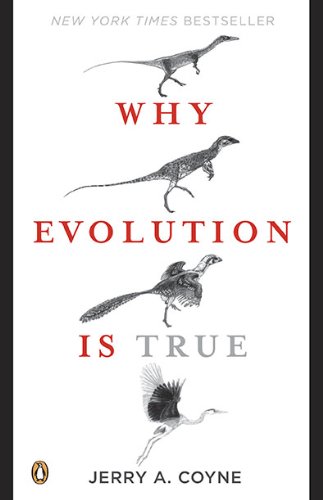1.5 Percent Gene Difference Translates to Thousands of Protein Differences
But recent work shows that our genetic resemblance to our evolutionary cousins is not quite as close as we thought. Consider this. A 1.5 percent difference in protein sequence means that when we line up the same protein (say, hemoglobin) of humans and chimps, on average we’ll see a difference at just one out of every 100 amino acids. But proteins are typically composed of several hundred amino acids. So a 1.5 percent difference in a protein 300 amino acids long translates into about four differences in the total protein sequence. (To use an analogy, if you change only 1 percent of the letters on this page, you will alter far more than 1 percent of the sentences.) That oft-quoted 1.5 percent difference between ourselves and chimps, then, is really larger than it looks: a lot more than 1.5 percent of our proteins will differ by at least one amino acid from the sequence in chimps. And since proteins are essential for building and maintaining our bodies, a single difference can have substantial effects.
Now that we’ve finally sequenced the genomes of both chimp and human, we can see directly that more than 80 percent of all the proteins shared by the two species differ in at least one amino acid. Since our genomes have about 25,000 protein-making genes, that translates to a difference in the sequence of more than 20,000 of them. That’s not a trivial divergence. Obviously, more than a few genes distinguish us. And molecular evolutionists have recently found that humans and chimps differ not only in the sequence of genes, but also in the presence of genes. More than 6 percent of genes found in humans simply aren’t found in any form in chimpanzees. There are over 1,400 novel genes expressed in humans but not in chimps. We also differ from chimps in the number of copies of many genes that we do share. The salivary enzyme amylase, for example, acts in the mouth to break down starch into digestible sugar. Chimps have but a single copy of the gene, while individual humans have between two and sixteen, with an average of six copies. This difference probably resulted from natural selection to help us digest our food, as the ancestral human diet was probably much richer in starch than that of fruit-eating apes.
Putting this together, we see that the genetic divergence between ourselves and chimpanzees comes in several forms—changes not only in the proteins produced by genes, but also in the presence or absence of genes, the number of gene copies, and when and where genes are expressed during development. We can no longer claim that “humanness” rests on only one type of mutation, or changes in only a few key genes. But this is not really surprising if you think about the many traits that distinguish us from our closest relatives. There are differences not only in anatomy, but also in physiology (we are the sweatiest of apes, and the only ape whose females have concealed ovulation), behavior (humans pair-bond and other apes do not), language, and brain size and configuration (surely there must also be many differences in how the neurons in our brains are hooked up). Despite our general resemblance to our primate cousins, then, evolving a human from an ape-like ancestor probably required substantial genetic change.
Notes:
The analogy is made that if you change 1 percent of the words you change much more than 1 percent of the sentences, and the same applies to the genetic drift between humans and chimps.
Folksonomies: evolution differences species chimpanzee
Keywords:
percent (0.935086 (negative:-0.146695)), Percent Gene Difference (0.828122 (negative:-0.481527)), chimps (0.793281 (negative:-0.297786)), percent difference (0.773077 (negative:-0.211186)), genes (0.710971 (positive:0.436568)), amino acids (0.663320 (positive:0.633299)), amino acid (0.501395 (negative:-0.241701)), protein sequence (0.498502 (negative:-0.211186)), total protein sequence (0.485665 (neutral:0.000000)), humans (0.477563 (negative:-0.320598)), salivary enzyme amylase (0.417928 (negative:-0.244081)), protein-making genes (0.408113 (neutral:0.000000)), novel genes (0.396076 (positive:0.436568)), ancestral human diet (0.382766 (neutral:0.000000)), substantial genetic change (0.380448 (neutral:0.000000)), key genes (0.361972 (neutral:0.000000)), single difference (0.327209 (positive:0.418917)), proteins (0.305405 (negative:-0.083334)), Protein Differences (0.302714 (negative:-0.481527)), (humans pair-bond and (0.277053 (negative:-0.230248)), genetic resemblance (0.276736 (negative:-0.579343)), individual humans (0.276045 (neutral:0.000000)), trivial divergence (0.260191 (negative:-0.738142)), recent work (0.259617 (negative:-0.579343)), genetic drift (0.250843 (negative:-0.320598)), substantial effects (0.242954 (neutral:0.000000)), fruit-eating apes (0.238991 (negative:-0.330453)), molecular evolutionists (0.235323 (neutral:0.000000)), genetic divergence (0.233202 (neutral:0.000000)), general resemblance (0.230823 (negative:-0.513301))
Entities:
amino acid:FieldTerminology (0.846780 (negative:-0.241701)), cousins:Person (0.491702 (negative:-0.522981)), 1.5 percent:Quantity (0.491702 (neutral:0.000000)), 1 percent:Quantity (0.491702 (neutral:0.000000))
Concepts:
Protein (0.984268): dbpedia | freebase | opencyc
Gene (0.903722): dbpedia | freebase
Amino acid (0.839481): dbpedia | freebase | opencyc
DNA (0.809765): website | dbpedia | freebase | yago
Human (0.715220): dbpedia | freebase | opencyc
Chimpanzee (0.688043): dbpedia | freebase | opencyc
Acid (0.683863): dbpedia | freebase
Genetics (0.662310): dbpedia | freebase | opencyc





